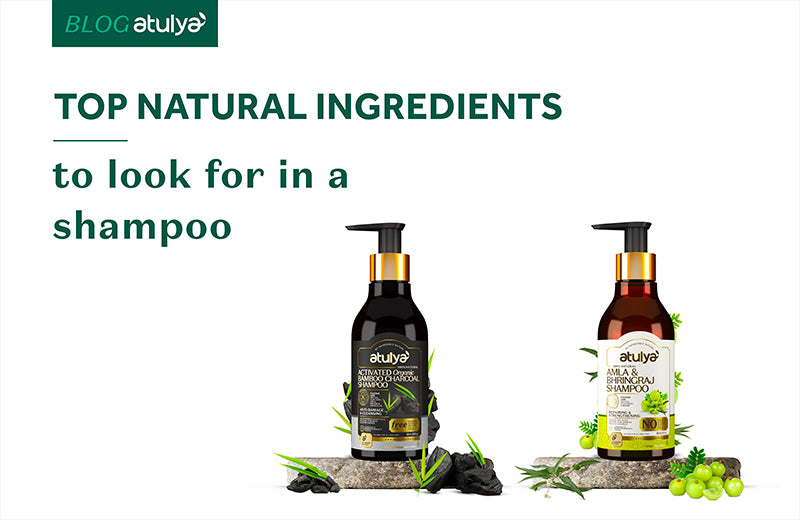The Only Guide to Oily Skin: Causes, Symptoms & Daily Care Tips
Oily skin is a common concern for millions of people around the world. While it’s not harmful, it can lead to other issues like acne, enlarged pores, and persistent shine that makes your complexion look greasy.
However, if you understand the root causes, recognise the symptoms, and adopt the right skincare habits, you can manage your oily skin effectively. If you’re wondering how, scroll through the blog and explore everything you need to know about oily skin, its causes, signs, and practical tips for a daily oily skin care routine that keeps excess oil in check.
Table of Contents
What Is Oily Skin?
Oily skin is characterised by an overproduction of sebum, the natural oil secreted by the sebaceous glands beneath the skin. While sebum is necessary for keeping your skin hydrated and protected, too much of it can result in:
-
A shiny or greasy appearance
-
Clogged pores
-
Blackheads and whiteheads
-
Frequent breakouts
If you constantly find yourself blotting your face or noticing a persistent sheen by midday, you likely have oily skin. To treat that, you can use the best face wash for oily skin or the best products for oily skin.
What Causes Oily Skin?
Several internal and external factors contribute to oily skin, and the common oily skin symptoms include:
1. Genetics: If oily skin runs in your family, chances are high that you’ll inherit it. Genetics plays a major role in determining the size and activity of your sebaceous glands.
2. Hormonal Changes: Fluctuations in hormones, especially androgens, can increase oil production. This is why oily skin is common during puberty, menstruation, pregnancy, and menopause.
3. Climate: People in hot, humid environments often notice more oil on their skin. High temperatures stimulate more sebum production.
4. Overwashing: Ironically, cleansing your face too often can strip the skin of natural oils, prompting it to produce even more oil as compensation.
5. Improper Skincare: Using products that are too harsh or not suitable for your skin type, like heavy creams or alcohol-based toners, can aggravate oiliness.
6. Diet: While the link between food and skin oiliness isn’t entirely clear, some studies suggest high glycaemic foods and dairy may contribute to increased sebum production.
Common Symptoms of Oily Skin
If you suspect your skin type might be oily, here’s how to identify oily skin:
-
Shiny or greasy skin, especially in the T-zone (forehead, nose, and chin)
-
Large, visible pores
-
Frequent acne or blackheads
-
Makeup that slides off quickly
-
Thick or coarse skin texture
You might also notice that your skin looks dull or congested due to clogged pores filled with excess oil and debris.
Daily Tips to Take Care of Oily Skin
Managing oily skin is all about balance. You want to control the oil without stripping your skin or disrupting its natural barrier. Here we compiled a comprehensive daily skincare tips for oily skin!
1. Cleanse Twice a Day: Choose a gentle, foaming cleanser with ingredients like salicylic acid, tea tree oil, or niacinamide. For the morning and night skincare routine for oily skin, make sure to wash with lukewarm water, avoid harsh scrubs, and pat dry with a clean towel. If you like, you can try out our face wash range to get the best results.
2. Use a Toner: Toners can remove residual oil and help tighten pores. So, make sure to look for alcohol-free formulations with calming ingredients. We recommend checking out our face toner collection.
3. Apply a Lightweight Moisturiser: Skipping moisturiser can make your skin produce more oil to compensate for the dryness. Look for products with hyaluronic acid, glycerin, or aloe vera for lightweight hydration.
4. Use Sunscreen Daily: Many people with oily skin skip sunscreen, fearing it will make their face oilier. However, sun protection is crucial to prevent premature ageing and skin damage. We recommend using sunscreen with SPF 50 or above, or you can just try out our sunscreen range to enjoy added benefits.
5. Exfoliate Regularly: Exfoliating 1–2 times a week helps remove dead skin cells and clear out clogged pores. We recommend using chemical exfoliants like AHA (glycollic acid) or BHA (salicylic acid) instead of physical scrubs.
6. Blotting Papers for On-the-Go: Carry blotting papers or oil-absorbing sheets to dab away excess oil throughout the day without disturbing your makeup or irritating your skin.
7. Clay Masks: Using a clay mask once or twice a week can help absorb extra oil and detoxify your pores.
8. Watch Your Diet: While skincare is key, what you eat can also impact your skin’s oil production.
Ingredients to Look for in Oily Skin Products
The right ingredients can make a big difference. When shopping for skincare, keep an eye out for:
-
Salicylic Acid: Penetrates pores to remove excess oil and prevent breakouts.
-
Niacinamide: Regulates sebum production and improves skin texture.
-
Zinc: Reduces inflammation and helps control oil.
-
Retinoids: Encourage cell turnover and prevent clogged pores.
-
Tea Tree Oil: Natural antibacterial and oil-reducing properties.
Ingredients to Avoid
If you have oily or acne-prone skin, you should avoid:
-
Mineral oil and petrolatum: These heavy occlusives can clog pores.
-
Alcohol-based products: While they may feel refreshing, they can over-dry your skin.
-
Coconut oil: Though natural, it's comedogenic and can block pores.
-
Fragrance-heavy products: These can cause irritation and increase oil production in some cases.
Final Thoughts!
All in all, oily skin isn’t a flaw; it’s just a skin type that requires a bit more care and attention. With the right products, a consistent routine, and a mindful lifestyle, you can manage excess oil and enjoy healthy, balanced skin.
If your oily skin leads to persistent or cystic acne, scarring, or emotional distress, it’s best to consult a dermatologist to learn how to reduce oily skin naturally. They can recommend prescription treatments on the best beauty products, like:
-
Topical retinoids
-
Oral medications (e.g., hormonal treatments or isotretinoin)
-
Professional chemical peels or facials
Remember: skincare is a journey, not a one-size-fits-all solution. With patience and the right strategy, your skin can look and feel its best, without the grease.
FAQs
Q. What causes oily skin?
Ans. Oily skin is primarily caused by overactive sebaceous glands producing too much sebum. Factors like genetics, hormonal changes, stress, diet, and even weather conditions can contribute to excess oil production.
Q. Is oily skin prone to acne?
Ans. Yes, oily skin is more prone to acne because excess sebum can clog pores and create an ideal environment for bacteria to thrive, leading to pimples, blackheads, and whiteheads.
Q. Should I moisturise oily skin?
Ans. Absolutely! Skipping moisturiser can actually make your skin oilier. Use a lightweight, oil-free, non-comedogenic moisturiser to maintain hydration without clogging pores.
Q. How often should I wash my face if I have oily skin?
Ans. Twice a day, once in the morning and once before bed, is ideal. Overwashing can strip your skin and trigger more oil production.
Q. What type of sunscreen is best for oily skin?
Ans. Choose a sunscreen that is oil-free, non-comedogenic, and has a matte finish. Gel-based or water-based formulas with at least SPF 50 are ideal.




